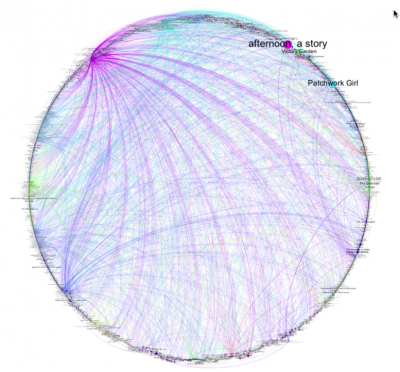Nick Montfort on “The Art of Operationalization” (Media Systems)
Among those doing computational media work, the concept of “operationalization” — as Nick Montfort discusses in this video from the Media Systems gathering at UC Santa Cruz — involves the formalization of theories from the humanities, arts, and social sciences and the implementation of these in a computational system, where they can be effective in new ways and “tested” in certain senses. This has proven a very powerful approach. For example, the entire field of 3D graphics could be seen as operationalizing arts knowledge about visual perspective and other knowledge from the visual arts. Or, more specifically, Facade (generally seen as the first interactive drama) is explicitly operationalizing concepts from arts and humanities theories of dramatic writing.






